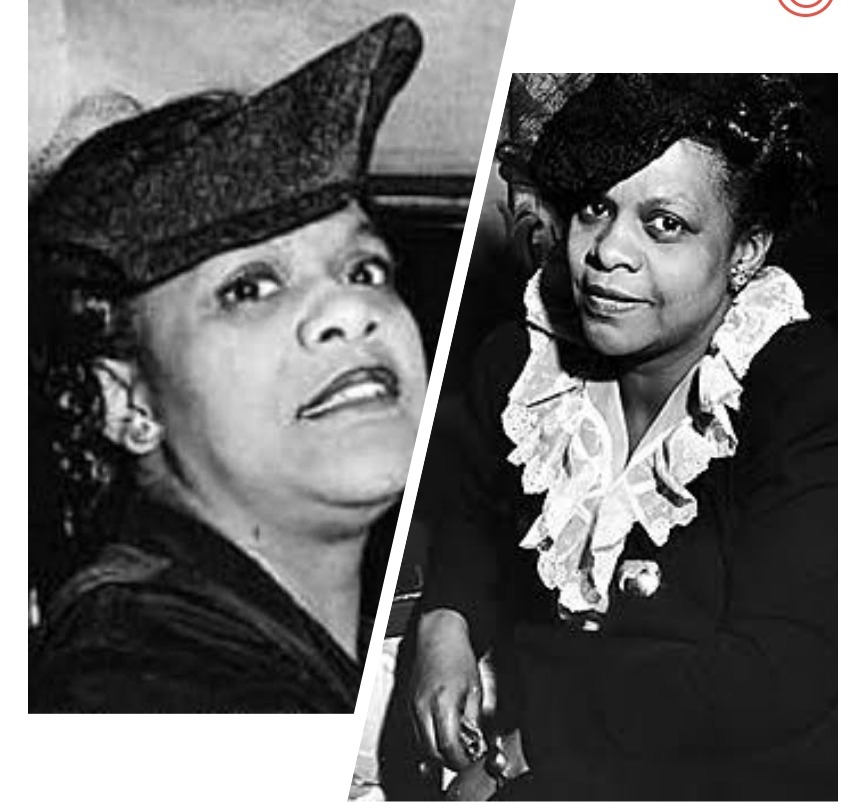The name Eunice Roberta Hunton Carter in the 1930s struck a resounding chord, synonymous with bravery, passion, and doggedness, a granddaughter of former slaves, she became New York’s first African-American assistant district attorney and further cemented her indelible legacy as a crucial force behind in bringing to justice, Charles “Lucky” Luciano, the most powerful mafia boss in America.
This would go down in history as the very first time a mobster was convicted for crimes that involved racketeering. Charles Luciano and his associates were at last brought to justice, and the victory captured the public’s attention, Eunice Carter was the formidable woman who made it all happen.
Billed the trial of the century, although Special Prosecutor Thomas E. Dewey captured the most attention during the trial, Eunice Hunton Carter, one of the 20 lawyers, the only female – and person of color amongst 19 white men ( appointed in 1935 as member of his “Twenty Against the Underworld” legal team) played a critical role – she helped linked prostitution to Luciano and orchestrated the sting operation that resulted in Luciano’s arrest and imprisonment. On April 1, 1936, the notorious gangster dubbed “The Father of Modern Organised Crime” was apprehended in Arkansas after fleeing from New York, found guilty, and sentenced to 30 to 50 years in state prison. Luciano was released from prison and deported to Sicily, Italy, a decade later.
Black History Month pays homage to unsung heroines who paved way for today and Eunice Carter, prominent American lawyer, social activist, and community leader was one who never truly got her well-deserved recognition.
One of New York’s first female African-American lawyers and first prosecutors of color in the United States, Carter, well known for her involvement in Harlem society, began her journey into the legal world when she enrolled at Fordham Law in 1927 as an evening division student. While attending law school, she was simultaneously working full-time in social work as a supervisor in the Harlem division of the Emergency Unemployment Relief Committee as well as caring for her ill son Lisle Jr. Carter in 1932 became one of the first Black women to earn a law degree at Fordham and to pass the New York bar nearly a year later. Upon receiving her law degree, she opened a law office, was an attorney in private practice, and ran as a Republican candidate for New York’s Nineteenth Assembly District seat in 1934.
In 1935, Carter’s brilliance and efficiency paved way for her to meet District Attorney William C. Dodge. She was named a New York assistant district attorney, mostly prosecuting prostitutes and abuse cases in New York City’s magistrate court. After being elected as one of New York County’s five district attorneys in December 1937, Carter proceeded to head the Abandonment and Special Sessions Bureaus—the largest bureau in the prosecutor’s office at the time, which handled misdemeanors in three different courts.
In 1946, she entered private practice, soon becoming business partners with journalist and businessman Ernest E. Johnson to form Carter-Johnson Associates, a public relations firm with a focus on minorities.
Carter eventually became a legal advisor to the newly formed United Nations, a member of the U.S. National Council of Negro Women, secretary of the Mayor’s Commission on conditions in Harlem, and several other national and global organizations. She was notably actively involved in the Pan-African Congress and United Nations committees to advancing the course of women globally.
Amongst Eunice Carter’s legacies, she inspired a character on HBO’s “Boardwalk Empire.”
Born 16 July 1899, Atlanta, Georgia, United States, she died 25 January 1970, in New York City.



